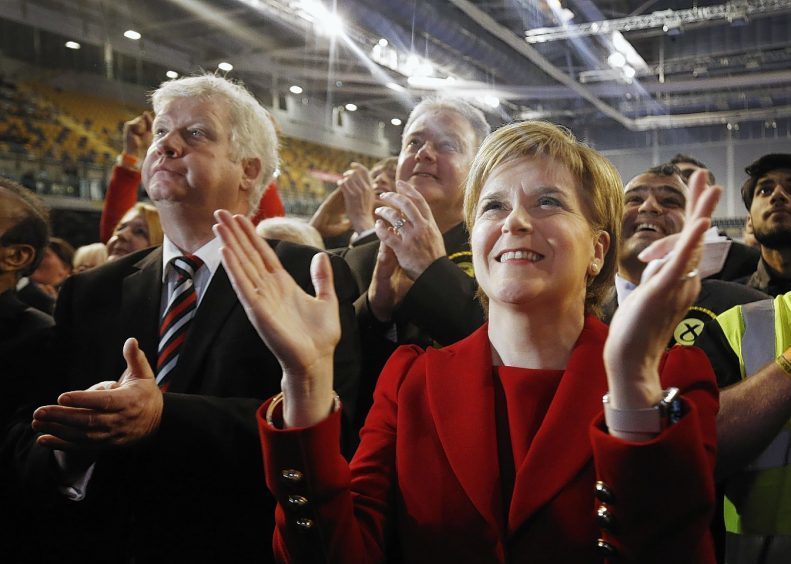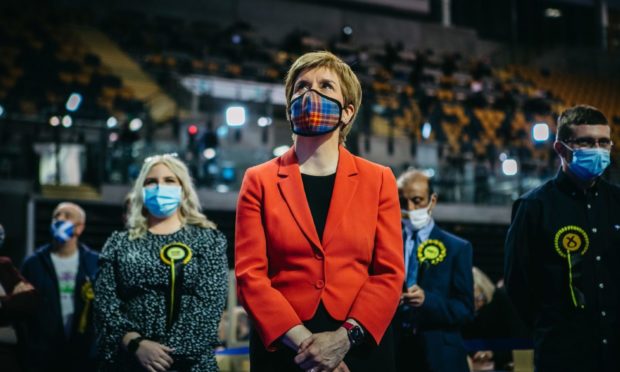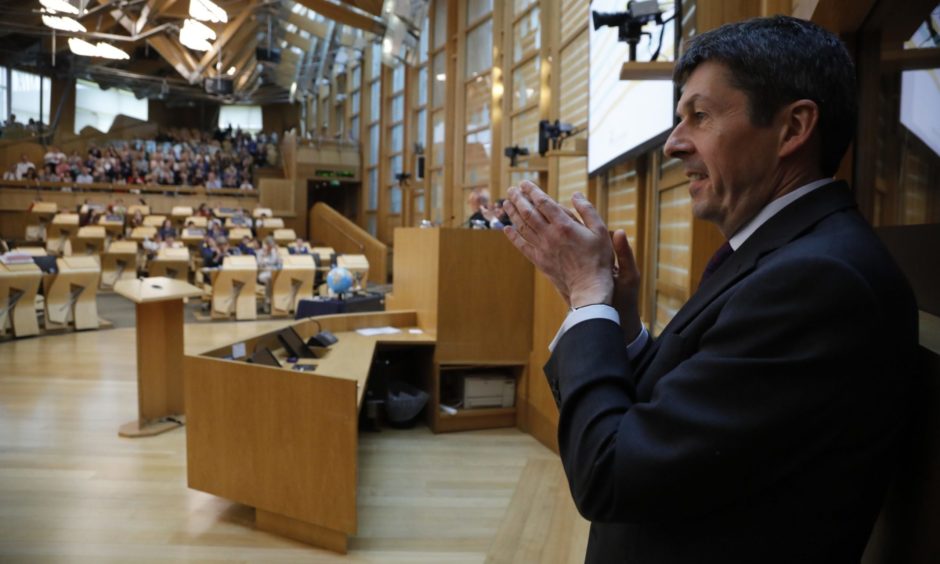It may be worth taking a step back from last week’s Scottish parliamentary election and considering what the SNP actually achieved.
In 2011 the party won 69 seats, effectively breaking the D’Hondt voting system, which had been designed (by Labour) to give no party with less than 50% of the votes more than 50% of the seats – as happens at virtually every Westminster election.
In 2016, the system worked as it was designed to when, despite increasing her party’s total vote by 1%, Nicola Sturgeon’s party saw its number of MSPs fall to 63.
Last week, the party increased its vote once again by 1% and managed to squeeze out one more seat. However, with the help of the Greens, they now have what seems an overwhelming mandate for another independence referendum.
No Westminster leader has come close to Sturgeon’s success
We should also consider a couple of facts. While Boris Johnson and the Conservatives are firmly in charge at Westminster, this was the 48th consecutive election at all levels which they have lost in Scotland. When David Cameron was Prime Minister, he said he had a mandate to hold a Brexit referendum, having won just 37% of the vote at the previous election. So much for the Union being a partnership of equals.
The SNP won 48% of the constituency votes last week and achieved the highest number of votes for any party since devolution. At the last general election, the Conservatives won just 43.6% of the votes but landed an 80 seat majority.

Winning 62 of the 73 Scottish constituency seats, as the SNP did last week, would equate to a party at Westminster winning 552 of the 650 seats there, something which no party has ever come near. Indeed, no Westminster prime minister has won 50% of the vote since 1935.
And finally, and perhaps most decisively, the SNP and the Greens stood on a platform of holding Indyref2 – and won – while Labour, the Conservatives, and the Lib Dems stood on the opposing one – and lost.
What happens now?
So what happens now? On Thursday (May 13), Ken Macintosh will be back for a final hurrah as temporary Presiding Officer, to swear in the new members and preside over the election of a new PO.
That brings us to another interesting statistic. The SNP have 64 MSPs, the other parties 65. But the new PO is almost certain to come from the Opposition, perhaps the Greens, leaving the Parliament arithmetic tied at 64-64.
There will be other changes. The Lib Dems, now with just four seats, will no longer be entitled to a question from their leader at First Minister’s Questions. Having lost cabinet members Mike Russell, Jeane Freeman, Aileen Campbell and Roseanna Cunningham, the new Scottish Government is bound to look very different.
There will be promotions from junior ministerial level to the cabinet, and new faces at the junior level. I don’t, though, expect any of the newly elected MSPs, with the possible exception of Angus Robertson, to find themselves catapulted straight into a ministerial role.
A union of consent could become a union of coercion
But what of the question of Indyref2, which dominated the campaign from both sides of the argument? Nicola Sturgeon has already said nothing will be done until the Covid crisis is over. That could easily take us into next year.
I hope that realpolitik kicks in and that the untenability of the Conservatives’ position finally dawns on them
Then the Scottish Government will have to pilot a referendum bill through parliament, followed by an application for a Section 30 Order from Westminster to allow it to go ahead. That application will inevitably be rebuffed, and the Scottish Government is likely to have to challenge this refusal in court – a challenge which is almost certain to fail.
All of these things – Covid, drawing up and passing a bill, taking matters to Westminster then the courts – will take time, and we are likely to be several years down the line before any referendum happens, if it happens at all during the next parliamentary term.
For supporters of Scottish independence, that’s a gloomy prospect. Cynics mutter darkly that some SNP politicians are only too happy with this scenario, comfortable in well-paid jobs at Holyrood and Westminster. I do not agree with them.
On the timing of Indyref2, I do hope that I am wrong. I hope that realpolitik kicks in and that the untenability of the Conservatives’ position finally dawns on them.
Otherwise, the union of consent under which Scotland and the rest of the UK has operated for over 300 years will have been replaced by a union of coercion.
Campbell Gunn is a retired political editor who served as special adviser to two First Ministers of Scotland


